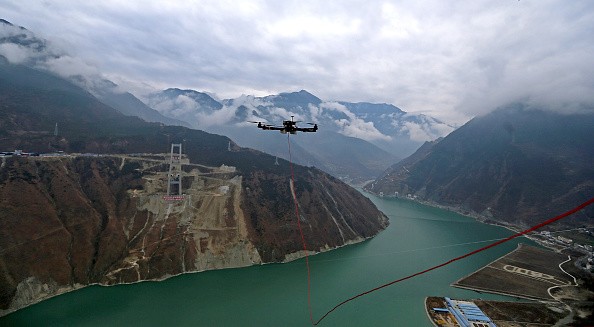A senior government official from China's northwest Xinjiang Uyghur Autonomous Region has unveiled plans to deploy drones for surveillance of its borders as part of a campaign to improve security in the region.
"Xinjiang will deploy drones, set up barbed wire and install surveillance cameras along the border to prevent people crossing the border illegally," Xinjiang's deputy chairman Jerla Isamudin was quoted by the state-owned China Daily newspaper on Tuesday.
The region will also need to improve its cooperation with neighboring countries on the exchange of terrorism-related intelligence, he added.
The Xinjiang government has undergone a series of modernization plans in recent years. Since 2014, border control units of the People's Liberation Army (PLA) have been connected to the region's power grids to provide a steady electrical supply to high-tech equipment. In 2017, 29 more frontier defense companies were connected to the grid, according to a report from the PLA Daily newspaper in March.
Xinjiang shares a border with eight countries, including Pakistan and Afghanistan, which has led to serious security concerns due to the presence of various terror groups in the region.
Many of the terrorists who have carried out attacks in Xinjiang received training abroad and then entered illegally, with some escaping across the border, according to local police.
Security officials have also cited the influence of religious extremism abroad as inspiration for a recent spate of bombings and knife attacks in Xinjiang, which is home to China's mainly Muslim Uyghur minority, allegedly carried out by separatists, although critics claim that it is also caused by ethnic tensions between Han immigrants and Muslim Uyghurs.
Shohrat Zakir, Chairman of Xinjiang's regional government, said in January that Xinjiang will impose tighter security measures in 2017.
Xinjiang's regional parliament passed a border control law in 2016, which took effect in December, which required residents along the border areas to report security authorities and penalized damage and vandalism to surveillance equipment.
Regional law enforcement authorities have also enacted regulations on February for compulsory installation of satellite tracking devices on automobiles owned by residents, resulting in criticism from human rights groups.



























